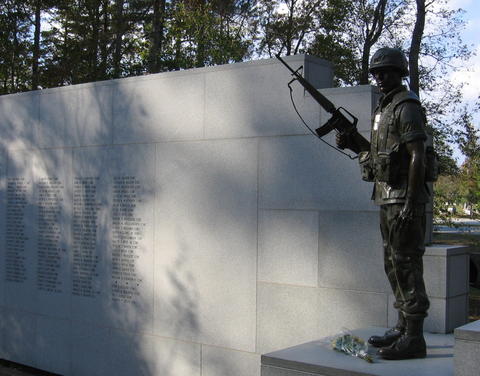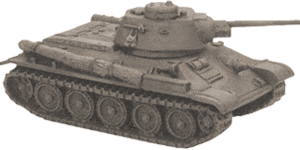In Memoriam: The 30th Anniversary of the Beirut Marine Barracks Bombing

By Bryan J Dickerson* and Steven D Mercatante*
On the morning of Sunday 23 October 1983, the city of Beirut, Lebanon was rocked by two powerful explosions. Suicide bombers sponsored by Iran and Syria detonated two massive truck bombs outside the barracks of U.S. Marine and French Army peacekeepers, killing 299 and wounding nearly a hundred. Thirty years later, we remember the incident that led to the withdrawal of the international peacekeeping force from Lebanon .
In August 1982, troops from the United States, France and Italy deployed to Beirut, Lebanon on a peacekeeping mission. U.S. Marines comprised the American component of the Multi-National Force. At the time, Lebanon was in the grips of a bloody civil war that had only worsened following Israel's 1982 invasion. The civil war was further escalated by U.S., Israeli, Syrian, and Iranian support of various Islamic and Christian terrorist and militia groups operating in the country.
In May 1983, the Marines and Sailors of the 24th Marine Amphibious Unit (MAU) arrived in Beirut as part of a scheduled rotation of peacekeeping forces. The 24th MAU consisted of Battalion Landing Team 1/8 (1st Battalion, 8th Marine Regiment), Marine Medium Helicopter Squadron 162 (HMM-162) (Reinforced), and Marine Amphibious Service Support Group 24. Colonel Timothy Geraghty, USMC, was the commanding officer of the 24th MAU. They were primarily located in the vicinity of Beirut International Airport. The weeks leading up to the eventual bombing had been marked by increasing violence, including heavy U.S. naval bombardments in the month of September - which Colonel Geraghty righly feared would cause the U.S. to be seen as a participant in the Civil War and not just a peacekeeper.
Geraghty's prophecy proved correct when on 0622 that fateful Sunday morning in October 1983, a suicide bomber driving a 19-ton truck penetrated the security perimeter of the building housing Marines and Sailors of Battalion Landing Team 1/8, crashed into the lobby and detonated the explosives carried in the truck. The ensuing explosion destroyed the four-story building, killing 241 service members, 220 of whom were Marines, and wounding another 70. Not long after, another suicide bomber drove an explosive-laden truck into the barracks building being used by French Army paratroopers, killing 58 of them.
Writing in the October 2008 issue of the U.S. Naval Institute magazine Proceedings, the commander of the 24th MAU Colonel Timothy Geraghty, USMC (Ret.) explained, “The Marine and the French headquarters were targeted primarily because of who we were and what we represented.” and followed that up by stating;
"It is noteworthy that the United States provided direct naval gunfire support [which fired a total of 360 5-inch rounds between 10:04 A.M. and 3:00 PM.] -- which I strongly opposed for a week -- to the Lebanese Army at a mountain village called Suq-al-Garb on September 19 and that the French conducted an air strike on September 23 in the Bekaa Valley. American support removed any lingering doubts of our neutrality, and I stated to my staff at the time that we were going to pay in blood for this decision."
Rescue forces were quickly mobilized from across the Mediterranean region and sent to rescue the wounded and recover the bodies of the dead. Heavy construction equipment was needed to move the debris in order to search for survivors. The rescue and recovery took several days. The strike on the 24th MAU prompted rapid reinforcement but ultimately the 24th MAU was forced to withdraw, and was replaced by the 22nd MAU.
The explosion that destroyed the Marine Barracks was at that time one of the largest non-nuclear explosion ever recorded. An investigation by the Federal Bureau of Investigation later determined that the truck had been packed with a combination of high explosives and butane gas, producing a blast the equivalent of 20,000 pounds of TNT. The political impact was even greater. Other than naval bombardment and air strikes the Reagan Administration declined to effectively respond to the attack, instead in February 1984 ordering the Marines to retreat while continuining to do little more than intensify the naval bombardment. The last Marines left in July. Conversely, the attack elevated Hezbollah's international stature and won it widespread acclaim in the Arab world; though to date Hezbollah denies involvement in the bombing.
Following the attack President Reagan appointed a fact finding committee that ended up blaming the U.S. military for the bombing. That said, the report grudgingly acknowledged the local Marine commander's contention that the September 1983 shelling Muslim positions at Suq-al-Garb had caused the truck bombing in retaliation. Today, a memorial to the victims of the Beirut bombing stands outside the main gate of the Camp Johnson section of Marine Corps Base Camp Lejeune in Jacksonville, North Carolina. Erected in 1986 the memorial consists of two broken granite walls symbolic of the destroyed Marine Barracks building and a statue of a Marine in combat gear. Inscribed on the panels of the walls are the names of the fallen and the words “They Came In Peace.”
*Bryan J Dickerson served as a Religious Program Specialist in the U.S. Navy Reserve for eight years, mobilizing and deploying twice to Iraq for Operation Iraqi Freedom. He served with the U.S. Marines MWSS-472 from January 2008 until June 2011 and served as Assistant Squadron Historian in 2009 and Squadron Historian in 2010/2011 as a collateral duty. He was honorably discharged in June 2011 as a Religious Program Specialist First Class (Fleet Marine Force). The photograph provided herein is also courtesy of Bryan J Dickerson.
*Steven D. Mercatante is the author of Why Germany Nearly Won: A New History of the Second World War in Europe. He is also the founder and editor in chief of The Globe at War. He is a corporate tax attorney and is the founder and principal of TIR Consulting LLC; a consulting firm specializing in international, federal, state and local tax compliance. Mercatante received his BA from the University of Michigan, a teaching certificate in history and political science from Eastern Michigan University, and a JD from Michigan State University College of Law, graduating with a concentration in international law. He is a member of the State Bar of Michigan. In addition to Why Germany Nearly Won his published works include many other writings in the legal and historical fields.
--------------------------------
Sources:
Frank, Benis M., U.S. Marines in Lebanon, 1982-1984. Washington, D.C.: History and Museums Division Headquarters, U.S. Marine Corps, 1987.
Geraghty, Timothy, Colonel, USMC (Ret.) “Beirut Bombing at 30: ‘We Came in Peace’” U.S. Naval Institute Proceedings October 2008. Accessed on 24 October 2013 on the USNI website http://news.usni.org/2013/10/23/beirut-bombing-30-came-peace?utm_source=rss&utm_medium=rss&utm_campaign=beirut-bombing-30-came-peace
Reagan, Ronald W. President of the United States of America.“Remarks at the Baptist Fundamentalism Annual Convention April 13, 1984.” The Public Papers of President Ronald W. Reagan. Ronald Reagan Presidential Library. http://www.reagan.utexas.edu/archives/speeches/1984/41384h.htm Accessed on 24 October 2013.



Post new comment